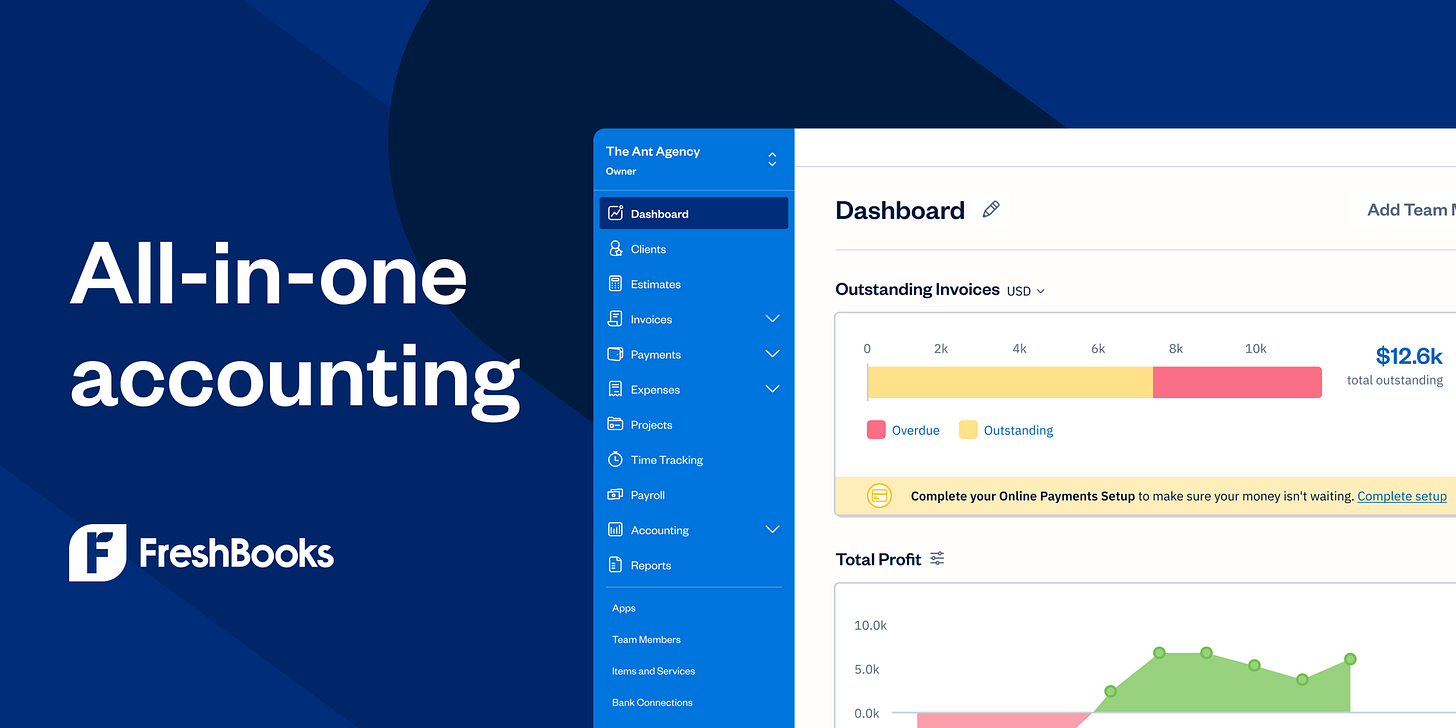Sam Altman on how they got here and what’s next
OpenAI and rivals seek new path to smarter AI as current methods hit limits
Sam Altman on how they got here and what’s next for OpenAI
OpenAI and rivals seek new path to smarter AI as current methods hit limits
Here's where OpenAI's 11 cofounders are now
FreshBooks all-in-one accounting
FreshBooks is an easy-to-use billing, payments, and accounting platform that streamlines your bookkeeping and keeps you tax-time ready all year round. The ideal solution for small businesses, FreshBooks has everything you need to grow.
***
Sam Altman on how they got here and what’s next for OpenAI
Few figures in the tech world stand poised to shape the future more profoundly than Sam Altman. As CEO of OpenAI, Altman and his team have spearheaded groundbreaking advancements in machine learning and generative AI, with their latest focus on large language models (LLMs) capable of reasoning at PhD levels. And according to Altman, this is only the beginning. In a recent essay, he projected that Artificial Superintelligence (ASI) could emerge within the next few thousand days.
To explore this transformative journey, Y Combinator President and CEO Garry Tan sits down with Altman in a new episode of the rebooted series, How To Build The Future. They discuss OpenAI's origins, the company's future ambitions, and Altman's advice for founders navigating an era of unprecedented technological change.
Based in San Francisco, Y Combinator is widely regarded as the world’s leading startup incubator, having launched hundreds of successful companies across industries….
***
OpenAI and rivals seek new path to smarter AI as current methods hit limitations
OpenAI declined to comment for this story. Two years after the release of the viral ChatGPT chatbot, tech companies that have seen their valuations soar with the AI boom have publicly maintained that adding more data and computing power will reliably improve AI models. Yet, a growing number of leading AI scientists are now questioning this “bigger is better” approach.
Ilya Sutskever, co-founder of Safe Superintelligence (SSI) and OpenAI, recently told Reuters that scaling up pre-training—the process of training AI models using vast amounts of unlabeled data to recognize language patterns—has hit a plateau. Sutskever, who left OpenAI earlier this year to establish SSI, was once a vocal proponent of leveraging massive data and computational power to advance generative AI, an approach that ultimately led to ChatGPT.
“The 2010s were the age of scaling,” Sutskever said. “Now we're back in the age of wonder and discovery. Everyone is looking for the next breakthrough. Scaling the right thing matters more now than ever.” While he declined to share specific details, Sutskever hinted that SSI is exploring alternatives to the current pre-training scaling approach.
Behind closed doors, researchers at major AI labs are reportedly facing challenges and delays in developing a large language model that can outperform OpenAI’s nearly two-year-old GPT-4, according to sources familiar with internal projects. Training runs for these massive models can cost tens of millions of dollars, requiring hundreds of chips running simultaneously. These complex systems are susceptible to hardware failures, and it can take months to gauge the final performance of a model.
Furthermore, large language models consume vast amounts of data, raising concerns that AI development may exhaust the world’s supply of easily accessible data. Energy demands also present an obstacle; the extensive power required for model training has contributed to delays.
In response to these hurdles, researchers are investigating new methods that could reduce reliance on sheer scale and lead to more sustainable, innovative paths forward.....…
Read on Reuters
***
Here's where OpenAI's 11 cofounders are now
OpenAI has attracted billions of dollars from investors, but it has also lost many key figures — including some of its cofounders. The startup was cofounded as a nonprofit research lab by a group of 11 people in 2015.
Since then, it has grown rapidly and amassed a wealth of users since it launched ChatGPT in 2022. In September, the $157 billion company said it has more than 1 million paying business users globally, a sharp increase from 600,000 in April. Alongside its rapid growth, the company has been hit by a series of controversies over the years, like the brief ousting of its CEO, Sam Altman, in November 2023.
More recently, a wave of high-profile exits has put it in the spotlight, with executives like former CTO Mira Murati leaving last month. Barret Zoph, the vice president of research, and Bob McGrew, chief research officer, left on the same day as Murati. OpenAI has also lost two cofounders this year: Ilya Sutskever, who announced his departure in May, and John Schulman, who defected to its rival Anthropic in August.
As of October 2024, the company had just three remaining cofounders, although one is on sabbatical until the end of the year. Here's where all of the 11 cofounders are now….

